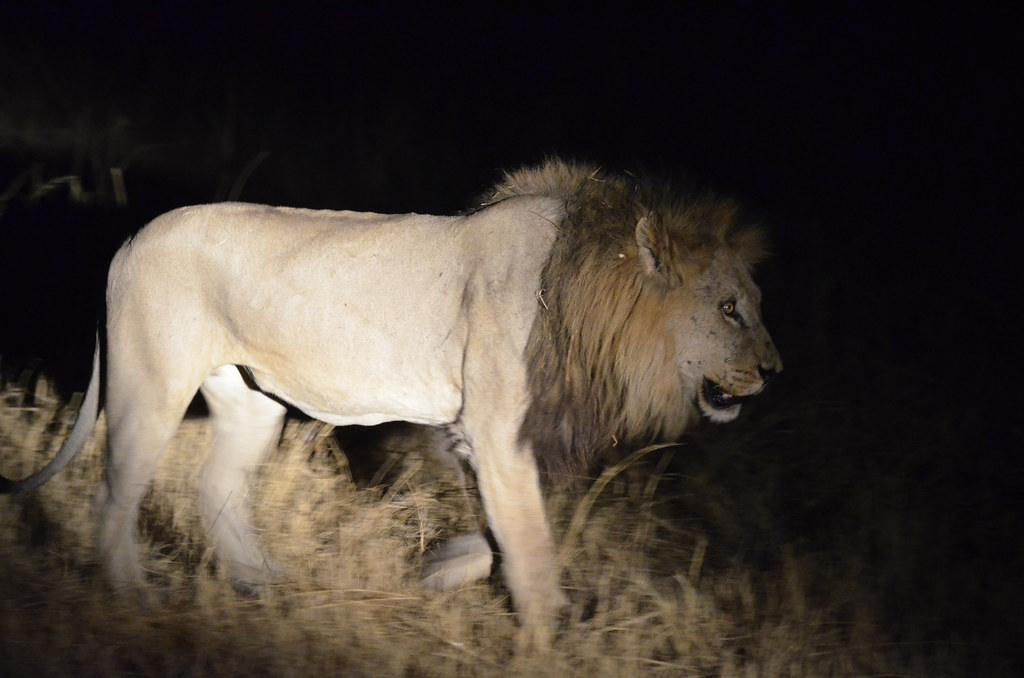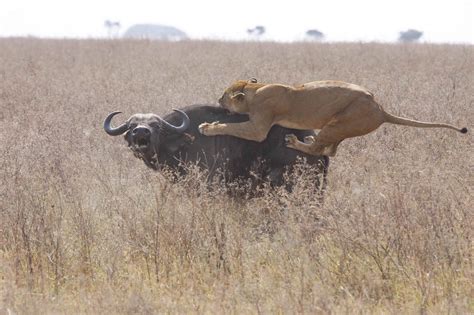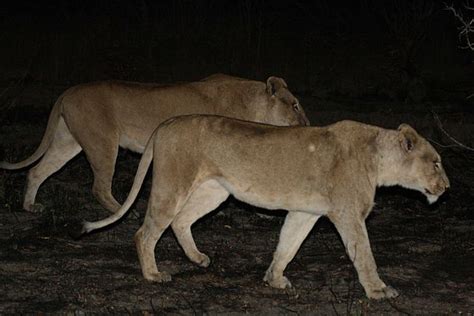Are lions endangered?
Lions (Panthera leo) are classified as “Vulnerable” on the IUCN Red List. This is because there has been a large decline in the number of lions across their range over the past century. To learn more about the conservation status of lions, please take a look at the Lion Recovery Fund and consider making a donation.
Are lions nocturnal?
Lions are not strictly nocturnal although they are most active at night. Lions are formidable hunters and are able to capture prey during the day as well as at night. However, their hunting success is considerably higher at night time and so they choose to hunt more under the cover of darkness.
Why are lions more active at night?
Many studies have shown that mammals are most active during periods of full moons. The Moon phase is affecting the activity of animals because there is a big difference in the amount of light, even at nighttime. During full moons, prey animals will find it easier to see predators and also other hazards.
In case you are interested, the idea that the difference in intensity of light affects the activity of prey animals is called the Visual Acuity Hypothesis.

Remember that the behaviour of animals is supposed to increase their likelihood of surviving and reproducing, according to the Theory of Evolution.
All animals will want to reduce the amount of energy they use and increase the amount they get from food. Prey animals do this by only changing their behaviour when lions are nearby.
If lions are not close, then there is less need to worry about them and so animals such as zebras, wildebeest and antelopes will be able to focus on eating the most nutritious food they can.
Do lions sleep at night?
Lions tend to sleep during the day, just like many other big and small cat species. This is because they are most successful at hunting when it is dark. Lions also have to avoid activity during the warmest hours (when it is light) because they could overheat. Also, water is limited in the savanna and more water is lost during the day.
Why else is lion activity related to the moon?
As we mentioned, the amount of light is dependent on the phase of the moon. During the new moon phase, the moon is between the Earth and the Sun. This means the light from the sun is reflected back towards it, instead of being reflected toward us. That is why it is darker during the new moon phase.
Predators such as lions generally have better eyesight during darkness than prey, this is an evolutionary advantage to help them survive and pass on their genes.
Studies have shown that lions hunt the most and are most successful at hunting during the new moon. Lions also adjust their feeding habits to keep their bellies full. When there is a full moon and hunting is more difficult, lions hunt more during the day to make up for their lost catches.
Interestingly, studies that look at lions and their feeding habits look at the size of their bellies to find out if they have recently eaten or not!
Do lions change their behaviour based on hyenas?
Lions and hyenas are competitors for food in their shared habitat. It is not uncommon for conflict to happen between them over prey that one of them has caught.
Lions are dominant however and a study in 2016 found that lions do not change hunting behaviour based on whether or not hyenas are nearby.

Check out our other blogs on animals and nature!
- Can lions swim?
- Do lions attack and eat humans?
- Do moths sleep? and Where do moths go during the day?
- Do seagulls sleep? and Where do seagulls sleep?
- How long…..? answers to all of your questions.
We hope you found out more about the question Are lions nocturnal? and if you would like to read more about science, check out our other blog posts. Alternatively, consider taking a science quiz!
About Discover Tutoring.
We are biologists by training and when we write an article we read the scientific literature to find the most accurate answers to your questions. We do not guess, we do not assume, we check the research. If you are interested in our conclusions and want to find out more, check out the references at the bottom of every page we post on nature.
References –
Kittle, M., Bukombe, J., Sinclair, A., Mduma, S., Fryxell, J. (2016) Landscape-level movement patterns by lions in western Serengeti: comparing the influence of inter-specific competitors, habitat attributes and prey availability. Movement Ecology, 4, 17. . https://doi.org/10.1186/s40462-016-0082-9
Packer, C., Swanson, A., Ikanda, D., Kushnir, H. (ed. Rands, S). (2011) Fear of Darkness, the Full Moon and The Nocturnal Ecology of African Lions. PLoS One, 6(7): e22285. https://doi.org/10.1371/journal.pone.0022285
Sze-Wing Yiu., Owen-Smit, N., Cain, J. (2022) How lions move at night when they hunt? Jounal of Mammalogy. https://doi.org/10.1093/jmammal/gyac025
Triall, L., Martin, J., Owen-Smit, N. (2016). Lion proximity, not moon phase, affects the nocturnal movement behaviour of zebra and wildebeest. Journal of Zoology, 299. https://doi.org/10.1111/JZO.12343
Western, G., Macdonald, D., Loveridge, A., Dickman, A., Tyrrell, P., & Russell, S. (2021). Understanding the dynamics of lion attacks on humans and livestock in southern Maasailand, Kenya. Oryx, 55(4), 581-588. doi:10.1017/S0030605319000826

